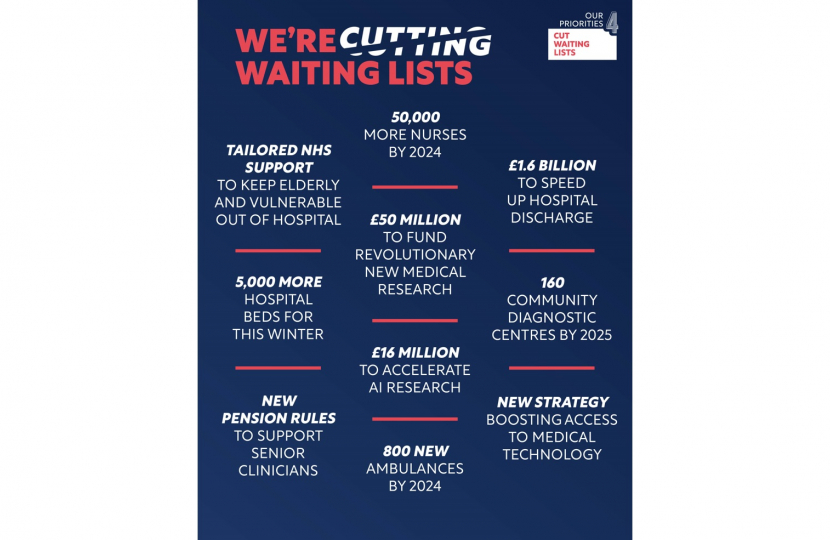
We all know the effect of the pandemic on our health service. This is an issue I continue to highlight directly to ministers as well as through joint efforts with other parliamentarians.
A strong primary care system reduces accident and emergency pressures, helps people live healthier lives, and improves the efficiency of the NHS more widely.
Cutting NHS waiting lists is one of the Prime Minister’s five priorities and the Primary Care Plan will make a difference for patients around the country.
Firstly, reforms to booking GP appointments will make it easier to access these in the first place. We have all experienced ourselves, or heard from a friend or family member, about the ‘8am rush’ to get an appointment.
Reforms will ensure patients will no longer be asked to call back on a different day for an appointment. Instead, they will know on the day how their request is to be handled.
If urgent, they will be assessed on the same day. It is welcome to have confirmation that patient preference for a call, face-to-face appointment or online message will be respected. Some £240 million is being invested in new systems to assist GP practices in delivering this.
Secondly; patient choice will be increased by providing more services in pharmacies and on the high street. This will help alleviate pressure on GPs and save up to 10 million GP appointments a year.
Investment of £645 million will see more services provided by high street pharmacies. In England, four in five of us live within a 20 minute walk of a pharmacy. The Pharmacy First minor illness service will mean that for the first time, pharmacists will be able to supply prescription-only medicines for seven common illnesses.
Services available on the NHS app will be expanded, with patients in more than 90 per cent of practices being able to see their records, book appointments and order repeat prescriptions using the app by March.
Thirdly; ensuring extra capacity so more appointments from more staff can be offered. Work continues on the commitment of 26,000 more primary care professionals and 50 million more appointments by March of next year. This is being supported by an extra £385 million this year, with actions including expansion of GP specialty training also taking place.
The increase in GP workload outside of appointments by more than half since the pandemic will also be addressed through the streamlining of GPs’ priorities.
I welcome confirmation from the Health & Social Care Secretary that 10 per cent more GP appointments are taking place every month compared to before the pandemic. I will continue to work to ensure the focus of Government and NHS remains on securing improvements for patients.
Henry Smith MP


